Science & Society

Educators and Parents, Sign Up for The Cheat Sheet
Weekly updates to help you use Science News Explores in the learning environment
Thank you for signing up!
There was a problem signing you up.
-
 Health & Medicine
Health & MedicineExplainer: What is a clinical trial?
Scientists perform these to compare the effects of a new drug or therapy in treated — and untreated — people. Always people.
-
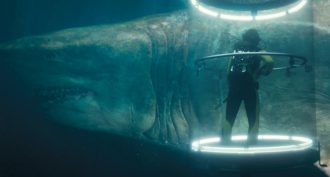 Animals
AnimalsWhat ‘The Meg’ doesn’t quite get right about megalodon sharks
A paleobiologist helps separate shark fact from fiction in the new Jason Statham film The Meg.
-
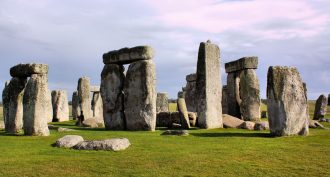 Archaeology
ArchaeologyCremated remains hint at who was buried at Stonehenge
A chemical analysis shows that people carried bodies from far away to be buried at the mysterious ancient monument known as Stonehenge.
By Bruce Bower -
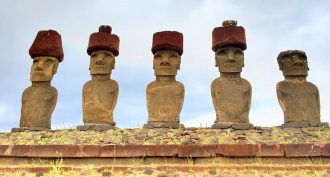 Archaeology
ArchaeologyPutting hats on Easter Island statues may have required some rock and roll
Fitting huge stone hats on 3-story-high Easter Island statues may have required only a small workforce armed with ropes and ramps.
By Bruce Bower -
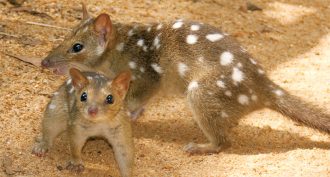 Animals
AnimalsUh oh! New approach to saving this species imperiled it
After years separated from predators, these endangered quoll lost their fear of them. This jeopardizes the safety of any quoll released back to their home range.
-
 Math
MathSupreme Court shies away from test on the math of voting rights
Mathematicians are taking aim at gerrymandering — drawing election district maps that seek to benefit one party over another. The courts have become involved too.
-
 Science & Society
Science & SocietyWomen are closing the participation gap in science, but slowly
In many STEM fields, current rates of progress aren’t enough to close the gender gap for decades or even centuries, a new study suggests.
By Kyle Plantz -
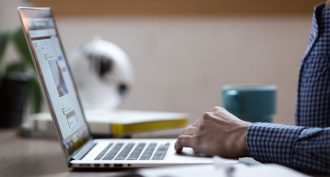 Computing
ComputingIncognito browsing is not as private as most people think
You may think you’re going deep undercover when you set your web browser to incognito. But you’d likely be mistaken, a new study finds.
-
 Brain
BrainNot all social media sites are equally likely to provoke anxiety
Most teens are on social media. Could these sites cause anxiety? A teen checks it out — and finds big differences.
-
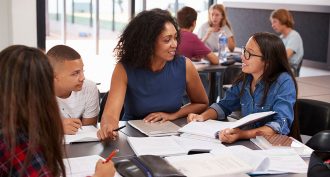 Psychology
PsychologyYour window to learn new languages may still be open
Results from an online grammar quiz suggest that people who start learning a second language at age 10 or 12 can still learn it well.
By Bruce Bower -
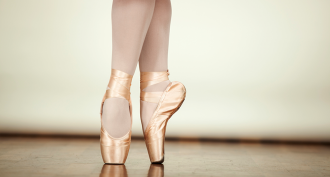 Science & Society
Science & SocietyScience may help keep a ballerina on her toes
Ballerinas can go through a pair of shoes every performance. To make her shoes last a little longer, one teen reinforced them with carbon fibers.
-
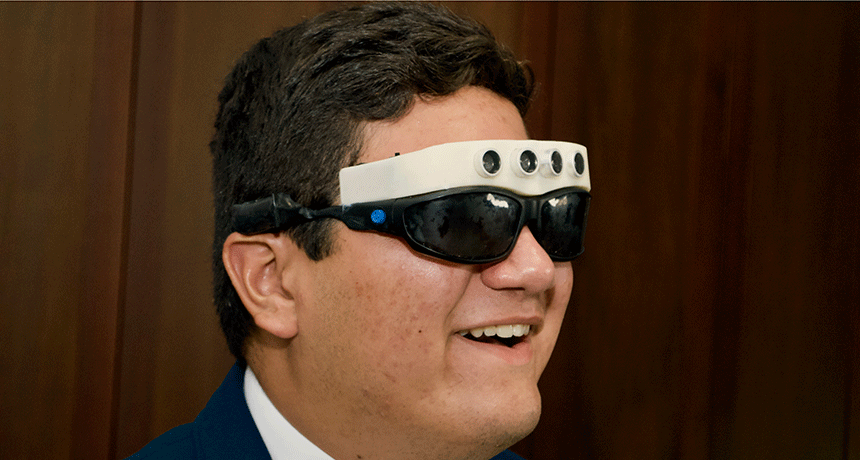 Tech
TechNew eyewear could help the visually impaired
Young inventors develop novel electronics to help people identify colors and navigate obstacles.
By Sid Perkins